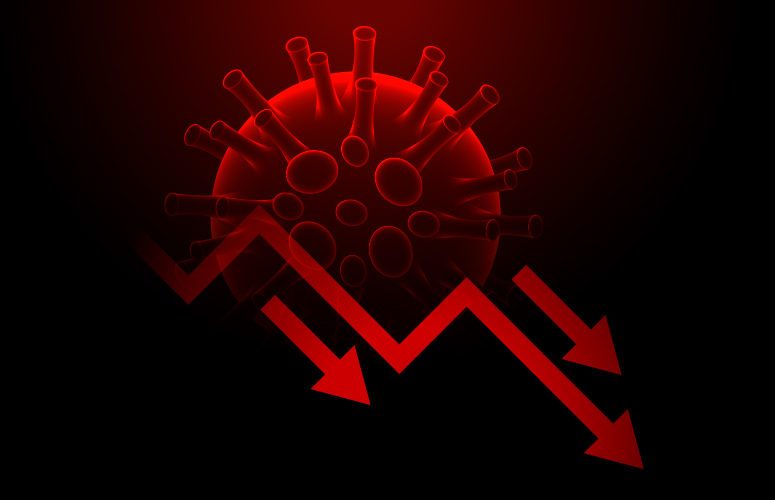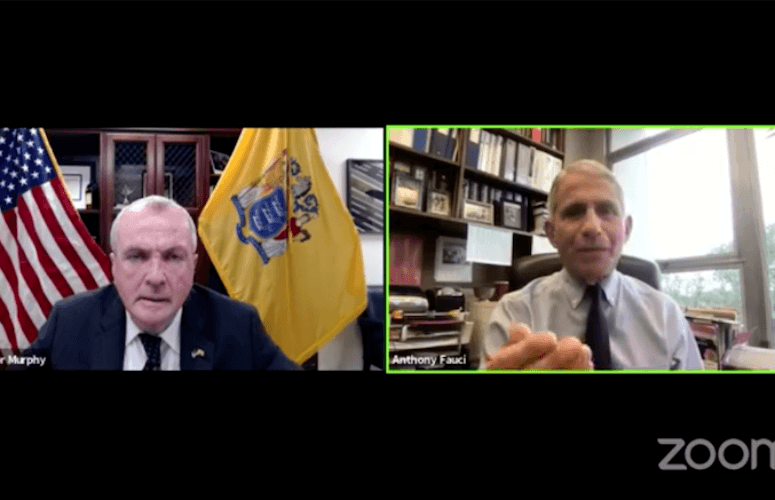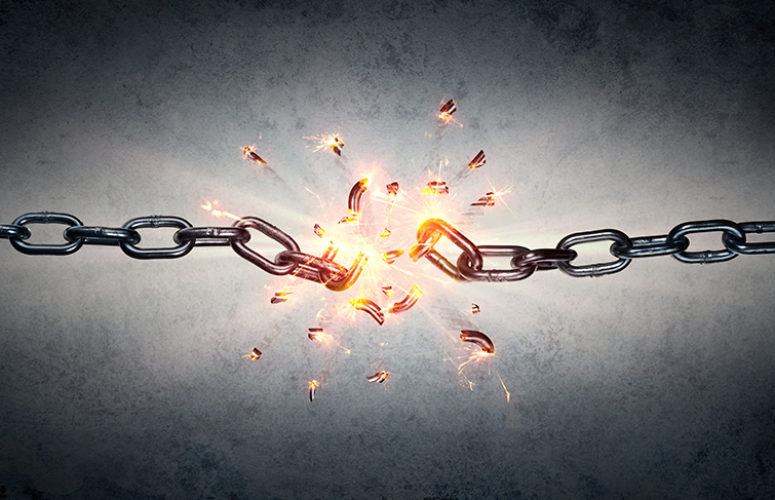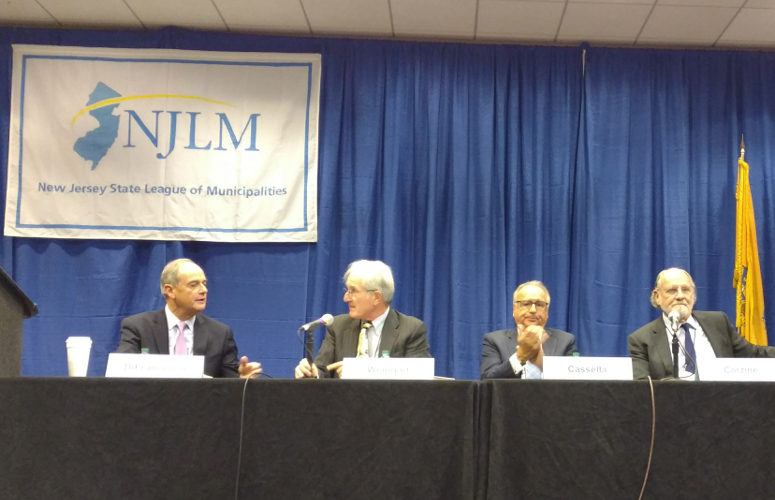
Murphy Announces ‘One Jersey Pledge’ as Unemployment Increases
By George N. Saliba, Managing Editor On Jun 11, 2020Gov. Phil Murphy presented “One Jersey Pledge” at today’s COVID-19 press conference, which he said is “a pact between businesses and consumers on the one hand, and employers and employees on the other.” He added, “It lays out clearly that we all share a responsibility to see our restart and recovery through.”
Murphy said the pact will provide reopening guidance for businesses, including the placement of signs in stores and worksites across the state.
The New Jersey Business Coalition (which includes the New Jersey Business & Industry Association and more than 100 other leading business and nonprofit groups) specified that One Jersey Pledge is “a series of safety protocols that enable businesses and organizations to objectively demonstrate the steps that have been taken to keep their premises safeguarded. We believe this will build confidence amongst employees and patrons.”
The New Jersey Business Coalition’s statement from today also reads, in part, “With the safety protocol boxes in place as demonstrated by the One Jersey Pledge, we believe there should be no further delay in reopening those businesses that can do so responsibly.”
It adds, “We respect the Governor’s phased-in reopening plan and regard for protecting human health. But the lifting of restrictions for certain activities versus others and the slow pace of some aspects of state issued guidance is leaving on the sidelines thousands of businesses that can safeguard now and will pledge to do so. ”
The statement also says, “Meanwhile, New Jersey consumers are now traveling to neighboring states like Delaware and Pennsylvania for a trip to a salon, a hairstylist or a restaurant. Additionally, municipalities are now passing ordinances to open at a more rapid pace and the situation only gets more confusing and economically harmful to business owners.”
Asbury Park
With New Jersey still in Stage 1 of its reopening plan – and with Stage 2 set for Monday, June 15 – Gov. Phil Murphy addressed Asbury Park’s widely watched plan to reopen indoor dining within its city limits, calling the actions “… inconsistent with my executive order.”
He added, “We cannot have one set of rules for one town, and another for another town. We move as one state, guided by science and data. Period.”
Murphy appeared to be referring to March’s Executive Order No. 108, which essentially stipulates, in part, that municipalities and counties cannot create their own rules, separate and apart from the state’s executive orders and administrative orders.
Unemployment Update
Unemployment claims for the week ending June 6 were 23,166, adding slightly to what is now a cumulative total of 1,215,167 unemployment claims since March 15, the New Jersey Department of Labor and Workforce Development (LWD) announced today. The state’s entire nonfarm workforce is 4.2 million.
Of the unemployment scenario, Murphy said at today’s press conference, “The number of New Jerseyans who have claimed weekly benefits since COVID-19 sidelined so many of our businesses is by far the largest volume the state labor department has ever served in such a short period of time.”
Murphy added that 94% of claimants have been paid, receiving a total of $6.5 billion, “and the [New Jersey Department of Labor & Workforce Development] will not rest until every claim is settled and every penny is properly distributed.”
LWD Commissioner Robert Asaro-Angelo was present at today’s press conference, and noted that the department’s new, contracted call center will begin operating next week, and that “this will have a significant impact on being able to have more claimants talk to somebody.”
He added, “And this is in addition to the hundreds more of our own employees and staff lent to us from other state agencies who are continually being enlisted to help us. This is incredibly important, because it will free up our more experienced agents to focus on more complex claims in which there is a sticking point.”
Not Returning to Work
Asaro-Angelo said that while the unemployment insurance system places a great emphasis on working and attempting to find work, he added: “Nevertheless, our laws make clear that where [an employee] raises substantial health and safety concerns, and the employer fails to remedy such concerns, that worker may lawfully refuse to return to work and continue collecting UI benefits. This determination is highly fact specific, and it is not easily met.” He said that LWD is today releasing guidance surrounding these principles for both businesses and workers, within the context of the coronavirus pandemic.
The guidance additionally focuses on high-risk individuals with serious, underlying health conditions, as well as people who are unable to return to work because a child’s school or daycare facility remains shuttered due the coronavirus pandemic (the latter individuals may be eligible for Pandemic Unemployment Assistance, he said). More details are available at nj.gov/labor
Separately, LWD is receiving $8.5 million via the COVID-19 Disaster Recovery National Dislocated Worker Grant from the United States Department of Labor, according to Asaro-Angelo. These monies, he said, will be used for partnering with county workforce development boards on “job development, short-term skills training, and on-the-job training.”
He added, “As some jobs wane because of the pandemic, and new opportunities are created in its wake, we want to make sure we are doing all we can to prepare New Jerseyans for the future of work in this great, resilient state.”
To access more business news, visit NJB News Now.
Related Articles:





